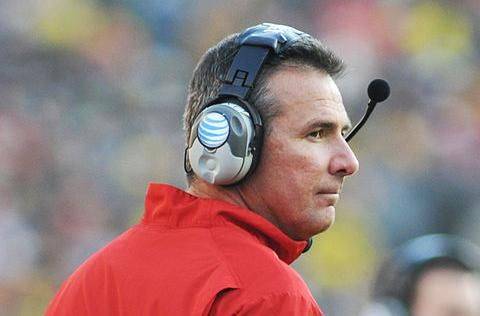I’m torn here. Very torn.
I’ve combed through the data, analyzed it to the best of my ability, but still find myself with lingering questions. I wonder if society has it all wrong, if priorities have been misplaced, if the pursuit of more money has undermined the very fabric of building a sustainable society.
Here’s the thing. You’re paid not just by how good you are at what you do but by how profitable your industry is at any given moment in time. That’s good for head and assistant coaches in college athletics. And that’s bad for many professions that are arguably more important and have greater responsibilities than who calls what play when.

According to the report obtained through a Freedom of Information Act request, head and assistant coaches make on average $184 thousand per year at the University of Illinois, Urbana-Champaign (UIUC). And they are not alone.
Nick Saban, head football coach at the University of Alabama, makes $5.9 million per year, according to an article recently published in USA Today.
Urban Meyer, head football coach for the Buckeyes, made $4.6 million this past season, according to an article published in March 2014, with CBSSports.com.
And Tim Beckman, your football coach at the UIUC makes $1.7 million per year, according to a 2013 article in The Daily Illini.
That’s a lot of cash flowing into a few pockets. Never mind that college athletes are paid squat unless you factor in financial aid and scholarships, and that female coaches don’t nearly get paid as much as male coaches in college sports. I’m thinking bigger, of a greater picture.
Let’s compare those salaries above to salaries of other professions. Take, for instance, teachers.

According to TeacherPortal.com, the average starting teacher salary in Illinois is $36,000. The average salary for a teacher in Illinois, when factoring all teachers, is $64,000. And that beats many states by a long shot.
According to Indeed.com, the average salary for a police officer in Illinois is $32,000. That number jumps up in Chicago and is beneath the national average for the more rural parts of Illinois, including near and around Champaign-Urbana.
Salaries for firefighters follow the same pattern but still fare little better than police officers with an average salary of $34,000. Again, the number jumps up in Chicago but is beneath the national average for most other parts of Illinois.
Take any other numbers for those public servants. Take all of them and lump them together. It’s still a fraction of a fraction of what Tim Beckman makes as head coach of the football team at U of I. And it’s about equivalent to what student-athletes make on average in financial aid while playing sports at the U of I.
Is Tim Beckman overpaid? No, in fact, he’s just about par for what you would expect a college football head coach to make, and that’s the problem.
Sure, the football program makes a great deal of money. And, yes, some of the money the athletic department brings in flows back to the University itself. But should some of that $1.7 million Tim Beckman makes per year be allocated, as part of a public university, to other areas, such as research and development or the salaries of professors?
You may think I’m picking on Tim Beckman here, but I’m really not. I don’t know the man at all. He could be the greatest coach in the college football landscape, a rising star, and worth quite a bit of money. I’m sure he is.
But he’s not teaching the youth of our society. He’s not protecting and serving, and he’s not putting out fires that threaten our homes and businesses. And it’s not just him either. Coaching salaries in general, in college sports and professional sports, have ballooned in recent years to astronomical levels.
With the insatiable American appetite for sports, we’ve created a system that rewards those that wear the headsets over not just the players themselves, but others in valuable professions that make a fraction of what those play-callers make.
Salaries to head and assistant coaches amounted to $10 million for the 2013 reporting year. 56 head and assistant coaches, $10 million to divvy up. That’s slightly less than the amount paid in student aid for athletes, all 305 of them, 200 men and 105 women. And again, remember those salaries of public servants? No wonder no one anymore grows up wanting to be a teacher or a police officer or a firefighter.
So maybe I’m not that torn, not torn at all. I don’t think college coaches should be making that much money when others who do jobs with arguably more responsibility try to make it for much, much less.
I think that sometimes the wrong things are prioritized, because the consequences are not felt until much later, in worldwide standardized tests and a nation that is crime-ridden.
Should Tim Beckman and other college coaches be making millions per year, while our other public servants make $40,000 per year or less?
You be the judge.








